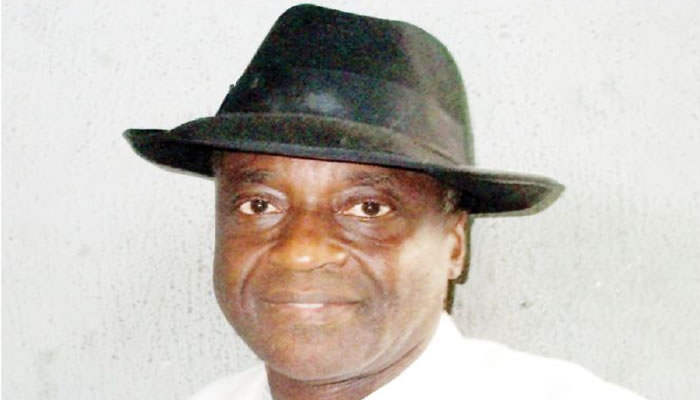The Labyrinth of Nigerian Politics: Divisions, Disputes, and the State of Emergency in Rivers State
The Nigerian political landscape is a complex web of interwoven interests, alliances, and conflicts. Recent events in Rivers State, coupled with the ongoing internal struggles within political parties, particularly the Labour Party, exemplify this intricate dynamic. Mr. Fafaa Dan-Princewill, a Labour Party chieftain in Rivers State, provides insights into these complexities, highlighting the challenges of party unity, the implications of the state of emergency, and the prospects for political realignment in the future.
The Labour Party, despite its impressive performance in the 2023 elections, is currently grappling with internal divisions, reflecting a broader trend of party dysfunction across Nigeria. Dan-Princewill attributes this to a combination of infiltration by individuals with conflicting interests, inherent political disagreements, and frequently changing electoral rules. He emphasizes the importance of stable regulations and internal reconciliation for the party’s future success. The recent Supreme Court judgment, affirming the autonomy of political parties in leadership decisions, offers a potential pathway towards greater stability, provided that consistent regulations are established and maintained. The Labour Party’s future as a major opposition force hinges on its ability to unify its various factions, leveraging the strengths of its association with the Nigerian Labour Congress and the significant youth following of its presidential candidate, Peter Obi.
The possibility of a coalition among opposition parties to challenge the ruling All Progressives Congress (APC) in 2027 is a recurring theme. Dan-Princewill, while acknowledging the democratic value of a multi-party system, expresses a preference for a two-party system or, at the very least, a strong coalition akin to the APC’s successful model. He recognizes the potential for such a coalition, given the past associations of key opposition figures like Atiku Abubakar, Peter Obi, and Rabiu Kwankwaso. However, he also points to the historical reasons for their political divergences, emphasizing that a coalition cannot be forced and requires genuine agreement among its members. The recent stance of the Peoples Democratic Party (PDP) governors, rejecting a coalition but welcoming other parties to join their ranks, adds another layer of complexity to the opposition landscape. Whether this approach will foster a united opposition remains to be seen.
The declaration of a state of emergency in Rivers State approximately a month prior to the interview introduced a new dimension to the state’s already volatile political climate. Dan-Princewill expresses surprise at the President’s decision, citing a lack of publicly evident justification for such a drastic measure. While acknowledging the President’s access to security information unavailable to the public, he questions the apparent absence of imminent danger that would warrant a state of emergency. He notes that the state has largely functioned normally despite the declaration, raising concerns that the intervention might have been politically motivated. The ongoing protests, some suspected of being sponsored, further complicate the situation.
The state of emergency appears to be linked to the ongoing dispute between the FCT Minister, Nyesom Wike, and the Rivers State Governor, Siminalayi Fubara. Dan-Princewill suggests that the conflict primarily revolves around control of local government structures, along with financial and other politically sensitive matters. He exonerates various stakeholder groups, such as the Southern and Middle Belt Leaders’ Forum (SMBLF), the Pan Niger-Delta Forum (PANDEF), and Rivers elders, from responsibility for the unresolved conflict, pointing out that the dispute is deeply personal and not easily amenable to external intervention. Furthermore, the legal proceedings surrounding the dispute necessitated a cautious approach from these groups.
The role and mandate of the Sole Administrator appointed under the state of emergency remain ambiguous. Dan-Princewill criticizes the lack of transparency regarding the Sole Administrator’s terms of reference and expresses concern about actions such as the dismissal of politically appointed officials, including the chairman of the electoral body. He questions the rationale behind these dismissals and emphasizes the need for clarity on the Sole Administrator’s powers and responsibilities, particularly given the ongoing court challenges to the state of emergency. The ultimate success or failure of the state of emergency hinges on whether it can facilitate reconciliation between Wike and Fubara, a prospect that remains uncertain given the deeply personal nature of their conflict and the failed attempts at mediation.
Finally, Dan-Princewill addresses his own political future, stating that his decision to contest the governorship again in 2027 will depend on various factors, including public support and the political climate. He expresses reservations about participating in a divisive political environment and emphasizes the importance of a stable and unified political platform. His future political trajectory, much like the broader political landscape in Nigeria, remains open to evolution and contingent on the unfolding dynamics within and between the various political actors.


